27 start with N start with N

Composer, performer, conductor, impresario, and charismatic and inspirational teacher, Boulanger engaged in a vast array of activities in a variety of media, from private composition lessons and lecture-recitals to radio broadcasts, recordings, and public performances. But how to define and account for Boulanger’s impact on the music world is still unclear. Nadia Boulanger and Her World takes us from a time in the late nineteenth century, when many careers in music were almost entirely closed to women, to the moment in the late twentieth century when those careers were becoming a reality. Contributors consider Boulanger’s work in the worlds of composition, musical analysis, and pedagogy and explore the geographies of transatlantic and international exchange and disruption within which her career unfolded. Ultimately, this volume takes its title as a topic for exploration—asking what worlds Boulanger belonged to, and in what sense we can consider any of them to be “hers.”

Focusing primarily on a group of Dominican nuns in Strasbourg, Germany, Amy Leonard's Nails in the Wall outlines the century-long battle between these nuns and the Protestant city council. With savvy strategies that employed charm, wealth, and political and social connections, the nuns were able to sustain their Catholic practices. Leonard's in-depth archival research uncovers letters about and records of the nuns' struggle to maintain their religious beliefs and way of life in the face of Protestant reforms. She tells the story of how they worked privately to keep Catholicism alive-continuing to pray in Latin, smuggling in priests to celebrate Mass, and secretly professing scores of novices to ensure the continued survival of their convents. This fascinating and heartening study shows that, far from passively allowing the Protestants to dismantle their belief system, the women of the Strasbourg convents were active participants in the battle over their vocation and independence.
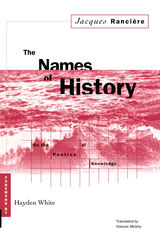
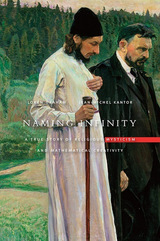
In 1913, Russian imperial marines stormed an Orthodox monastery at Mt. Athos, Greece, to haul off monks engaged in a dangerously heretical practice known as Name Worshipping. Exiled to remote Russian outposts, the monks and their mystical movement went underground. Ultimately, they came across Russian intellectuals who embraced Name Worshipping—and who would achieve one of the biggest mathematical breakthroughs of the twentieth century, going beyond recent French achievements.
Loren Graham and Jean-Michel Kantor take us on an exciting mathematical mystery tour as they unravel a bizarre tale of political struggles, psychological crises, sexual complexities, and ethical dilemmas. At the core of this book is the contest between French and Russian mathematicians who sought new answers to one of the oldest puzzles in math: the nature of infinity. The French school chased rationalist solutions. The Russian mathematicians, notably Dmitri Egorov and Nikolai Luzin—who founded the famous Moscow School of Mathematics—were inspired by mystical insights attained during Name Worshipping. Their religious practice appears to have opened to them visions into the infinite—and led to the founding of descriptive set theory.
The men and women of the leading French and Russian mathematical schools are central characters in this absorbing tale that could not be told until now. Naming Infinity is a poignant human interest story that raises provocative questions about science and religion, intuition and creativity.
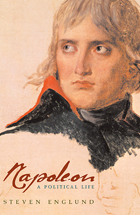
Winner of the J. Russell Major Prize, American Historical Association
Best Book on the First Empire by a Foreigner, Napoleon Foundation
“Englund has written a most distinguished book recounting Bonaparte’s life with clarity and ease…This magnificent book tells us much that we did not know and gives us a great deal to think about.”—Douglas Johnson, Los Angeles Times Book Review
“Englund, in his lively biography…seeks less to rehabilitate Napoleon’s reputation and legacy than to provide readers with a fuller view of the man and his actions.”—Paula Friedman, New York Times
“Napoleon: A Political Life is a veritable tour de force: the general reader will enjoy it immensely, and learn a great deal from it. But the book also has much to offer historians of modern France.”—Sudhir Hazareesingh, Times Literary Supplement
“Englund’s incisive forays into political theory don’t diminish the force of his narrative, which impressively conveys the epochal changes confronting both France and Europe…A strikingly argued biography.”—Matthew Price, Washington Post
This sophisticated and masterful biography brings new and remarkable analysis to the study of modern history’s most famous general and statesman. As Englund charts Napoleon’s dramatic rise and fall—from his Corsican boyhood, his French education, his astonishing military victories and no less astonishing acts of reform as First Consul (1799–1804) to his controversial record as Emperor and, finally, to his exile and death—he explores the unprecedented power Napoleon maintains over the popular imagination.
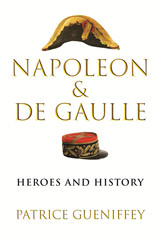
An Australian Book Review Best Book of the Year
One of France’s most famous historians compares two exemplars of political and military leadership to make the unfashionable case that individuals, for better and worse, matter in history.
Historians have taught us that the past is not just a tale of heroes and wars. The anonymous millions matter and are active agents of change. But in democratizing history, we have lost track of the outsized role that individual will and charisma can play in shaping the world, especially in moments of extreme tumult. Patrice Gueniffey provides a compelling reminder in this powerful dual biography of two transformative leaders, Napoleon Bonaparte and Charles de Gaulle.
Both became national figures at times of crisis and war. They were hailed as saviors and were eager to embrace the label. They were also animated by quests for personal and national greatness, by the desire to raise France above itself and lead it on a mission to enlighten the world. Both united an embattled nation, returned it to dignity, and left a permanent political legacy—in Napoleon’s case, a form of administration and a body of civil law; in de Gaulle’s case, new political institutions. Gueniffey compares Napoleon’s and de Gaulle’s journeys to power; their methods; their ideas and writings, notably about war; and their postmortem reputations. He also contrasts their weaknesses: Napoleon’s limitless ambitions and appetite for war and de Gaulle’s capacity for cruelty, manifested most clearly in Algeria.
They were men of genuine talent and achievement, with flaws almost as pronounced as their strengths. As many nations, not least France, struggle to find their soul in a rapidly changing world, Gueniffey shows us what a difference an extraordinary leader can make.
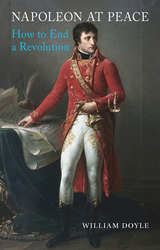
The French Revolution facilitated the rise of Napoleon Bonaparte, but after gaining power he knew that his first task was to end it. In this book William Doyle describes how he did so, beginning with the three large issues that had destabilized revolutionary France: war, religion, and monarchy. Doyle shows how, as First Consul of the Republic, Napoleon resolved these issues: first by winning the war, then by forging peace with the Church, and finally by making himself a monarch. Napoleon at Peace ends by discussing Napoleon’s one great failure—his attempt to restore the colonial empire destroyed by war and slave rebellion. By the time this endeavor was abandoned, the fragile peace with Great Britain had broken down, and the Napoleonic wars had begun.

One of the first books on "Gays in the Military" published following the historic repeal of "Don't Ask Don't Tell" in 2011 ,Napoleonic Friendship examines the history of male intimacy in the French military, from Napoleon to the First World War. Echoing the historical record of gay soldiers in the United States, Napoleonic Friendship is the first book-length study on the origin of queer soldiers in modern France. Based on extensive archival research in France, the book traces the development of affectionate friendships in the French Army from 1789 to 1916. Following the French Revolution, radical military reforms created conditions for new physical and emotional intimacy between soldiers, establishing a model of fraternal affection during the Revolutionary and Napoleonic Wars that would persist amid the ravages of the Franco-Prussian War and World War I. Through readings of Napoleonic military memoirs (and other non-fiction archival material) and French military fiction (from Hugo and Balzac to Zola and Proust), Martin examines a broad range of emotional and erotic relationships, from combat buddies to soldier lovers. He argues that the French Revolution's emphasis on military fraternity evolved into an unprecedented sense of camaraderie in the armies of Napoleon. For many soldiers, the hardships of combat led to intimate friendships. For some, the homosociality of military life inspired mutual affection, lifelong commitment, and homoerotic desire.
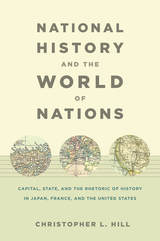
Delving into narrative histories, prose fiction, and social philosophy, Hill analyzes the rhetoric, narrative form, and intellectual genealogy of late-nineteenth-century texts that contributed to the creation of national history in each of the three countries. He discusses the global political economy of the era, the positions of the three countries in it, and the reasons that arguments about history loomed large in debates on political, economic, and social problems. Examining how the writing of national histories in the three countries addressed political transformations and the place of the nation in the world, Hill illuminates the ideological labor national history performed. Its production not only naturalized the division of the world by systems of states and markets, but also asserted the inevitability of the nationalization of human community; displaced dissent to pre-modern, pre-national pasts; and presented the subject’s acceptance of a national identity as an unavoidable part of the passage from youth to adulthood.

The National Stage answers this question by tracing the relation between theatre institution and public sphere in the discourses of national identity in Britain, France, and the United States. Exploring the boundaries between history and theory, text and performance, this book speaks to theatre and social historians as well as those interested in the theoretical range of cultural studies.
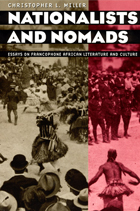
Miller ranges from the beginnings of francophone African literature—which he traces not to the 1930s Negritude movement but to the largely unknown, virulently radical writings of Africans in Paris in the 1920s—to the evolving relations between African literature and nationalism in the 1980s and 1990s. Throughout he aims to offset the contemporary emphasis on the postcolonial at the expense of the colonial, arguing that both are equally complex, with powerful ambiguities. Arguing against blanket advocacy of any one model (such as nationalism or hybridity) to explain these ambiguities, Miller instead seeks a form of thought that can read and recognize the realities of both identity and difference.
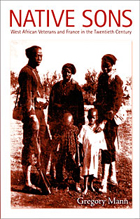
Focusing on the period between World War I and 1968, Mann draws on archival research and extensive interviews with surviving Malian veterans of French wars to explore the experiences of the African soldiers. He describes the effects their long absences and infrequent homecomings had on these men and their communities, he considers the veterans’ status within contemporary Malian society, and he examines their efforts to claim recognition and pensions from France. Mann contends that Mali is as much a postslavery society as it is a postcolonial one, and that specific ideas about reciprocity, mutual obligation, and uneven exchange that had developed during the era of slavery remain influential today, informing Malians’ conviction that France owes them a “blood debt” for the military service of African soldiers in French wars.
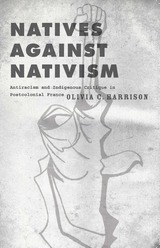
Examining the intersection of Palestine solidarity movements and antiracist activism in France from the 1970s to the present
For the pasty fifty years, the Palestinian question has served as a rallying cry in the struggle for migrant rights in postcolonial France, from the immigrant labor associations of the 1970s and Beur movements of the 1980s to the militant decolonial groups of the 2000s. In Natives against Nativism, Olivia C. Harrison explores the intersection of anticolonial solidarity and antiracist activism from the 1970s to the present.
Natives against Nativism analyzes a wide range of texts—novels, memoirs, plays, films, and militant archives—that mobilize the twin figures of the Palestinian and the American Indian in a crossed critique of Eurocolonial modernity. Harrison argues that anticolonial solidarity with Palestinians and Indigenous Americans has been instrumental in developing a sophisticated critique of racism across imperial formations—in this case, France, the United States, and Israel.
Serving as the first relational study of antiracism in France, Natives against Nativism observes how claims to indigeneity have been deployed in multiple directions, both in the ongoing struggle for migrant rights and racial justice, and in white nativist claims in France today.
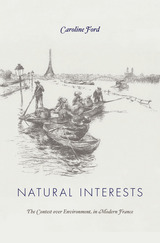
Challenging the conventional wisdom that French environmentalism can be dated only to the post-1945 period, Caroline Ford argues that a broadly shared environmental consciousness emerged in France much earlier. Natural Interests unearths the distinctive features of French environmentalism, in which a large and varied cast of social actors played a role. Besides scientific advances and colonial expansion, nostalgia for a vanishing pastoral countryside and anxiety over the pressing dangers of environmental degradation were important factors in the success of this movement.
Over the nineteenth and twentieth centuries, war, political upheaval, and natural disasters—especially the devastating floods of 1856 and 1910 in Paris—caused growing worry over the damage wrought by deforestation, urbanization, and industrialization. The natural world took on new value for France’s urban bourgeoisie, as both a site of aesthetic longing and a destination for tourism. Not only naturalists and scientists but politicians, engineers, writers, and painters took up environmental causes.
Imperialism and international dialogue were also instrumental in shaping environmental consciousness, as the unfamiliar climates of France’s overseas possessions changed perceptions of the natural world and influenced conservationist policies. By the early twentieth century, France had adopted innovative environmental legislation, created national and urban parks and nature reserves, and called for international cooperation on environmental questions.
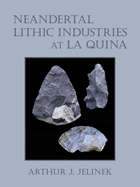
This study of the significance of changes through time revealed by an analysis of the chipped stone at La Quina reports on the excavations of the Cooperative American–French Excavation Project from 1985 to 1994. It moves beyond the largely descriptive and subjective approaches that have traditionally been applied to this kind of evidence and applies several important quantitative analytical techniques. These new approaches incorporate the history of previous excavations at the site, the results of the work of the Cooperative Project, and the most recent scientific understanding of relevant climatic changes.
This is a major contribution to our understanding of Neandertal behavior and industry. It adds new dimensions and perspectives based on innovative techniques of analysis. The analytic methods applied to lithic artifacts that form the heart of the book are the product of considerations about how to best interpret a sequence of multiple contextual samples. The author concludes the book with an extraordinarily useful chapter that places his findings into the larger context of our contemporary knowledge of Neandertal life in the region.
The book comes with a compact disc, which includes coded observations used in the analysis in as many as 47 data fields for the more than 11,500 artifacts that will allow professionals and students to further explore the collection of lithic artifacts.
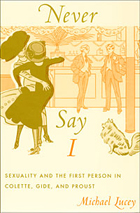
Considering novels along with journalism, theatrical performances, correspondences, and face-to-face encounters, Lucey focuses on the interlocking social and formal dimensions of using the first person. He argues for understanding the first person not just as a grammatical category but also as a collectively produced social artifact, demonstrating that Proust’s, Gide’s, and Colette’s use of the first person involved a social process of assuming the authority to speak about certain issues, or on behalf of certain people. Lucey reveals these three writers as both practitioners and theorists of the first person; he traces how, when they figured themselves or other first persons in certain statements regarding same-sex identity, they self-consciously called attention to the creative effort involved in doing so.
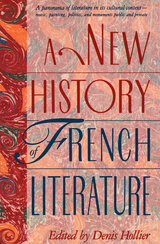
Designed for the general reader, this splendid introduction to French literature from 842 A.D.—the date of the earliest surviving document in any Romance language—to the present decade is the most compact and imaginative single-volume guide available in English to the French literary tradition. In fact, no comparable work exists in either language. It is not the customary inventory of authors and titles but rather a collection of wide-angled views of historical and cultural phenomena. It sets before us writers, public figures, criminals, saints, and monarchs, as well as religious, cultural, and social revolutions. It gives us books, paintings, public monuments, even TV shows.
Written by 164 American and European specialists, the essays are introduced by date and arranged in chronological order, but here ends the book’s resemblance to the usual history of literature. Each date is followed by a headline evoking an event that indicates the chronological point of departure. Usually the event is literary—the publication of an original work, a journal, a translation, the first performance of a play, the death of an author—but some events are literary only in terms of their repercussions and resonances. Essays devoted to a genre exist alongside essays devoted to one book, institutions are presented side by side with literary movements, and large surveys appear next to detailed discussions of specific landmarks.
No article is limited to the “life and works” of a single author. Proust, for example, appears through various lenses: fleetingly, in 1701, apropos of Antoine Galland’s translation of The Thousand and One Nights; in 1898, in connection with the Dreyfus Affair; in 1905, on the occasion of the law on the separation of church and state; in 1911, in relation to Gide and their different treatments of homosexuality; and at his death in 1922.
Without attempting to cover every author, work, and cultural development since the Serments de Strasbourg in 842, this history succeeds in being both informative and critical about the more than 1,000 years it describes. The contributors offer us a chance to appreciate not only French culture but also the major critical positions in literary studies today. A New History of French Literature will be essential reading for all engaged in the study of French culture and for all who are interested in it. It is an authoritative, lively, and readable volume.
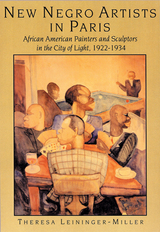
These artists exhibited the works they created in Paris at prestigious salons in France and in the United States, winning fellowships, grants, and awards. Leininger-Miller argues that it was study abroad that won these artists critical acclaim, establishing their reputations as some of the most significant leaders of the New Negro movement in the visual arts. She begins her study with a history of the debut of African American artists in Paris, 1830–1914, then provides readers with rarely seen profiles of each of the six artists from their birth through the end of their time abroad. Finally, Leininger-Miller examines patterns and differences in these individuals’ backgrounds and development, their patronage in the United States and France, their shared experiences abroad, and the impact their study in Paris had on the rest of their careers.
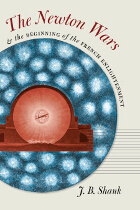
A comprehensive study of public culture, The Newton Wars and the Beginning of the French Enlightenment digsbelow the surface of the commonplace narratives that link Newton with Enlightenment thought to examine the actual historical changes that brought them together in eighteenth-century time and space. Drawing on the full range of early modern scientific sources, from studied scientific treatises and academic papers to book reviews, commentaries, and private correspondence, J. B. Shank challenges the widely accepted claim that Isaac Newton’s solitary genius is the reason for his iconic status as the father of modern physics and the philosophemovement.


The first new biography of America's foremost woman of letters in twenty years, No Gifts from Chance presents an Edith Wharton for our times. Far from the emotionally withdrawn and neurasthenic victim of earlier portraits, she is revealed here as an ambitious, disciplined, and self-determined woman who fashioned life to her own desires. Drawing on government records, legal and medical documents, and recently opened collections of Wharton's letters, Shari Benstock's biography offers new information on what have been called the key mysteries of her life: the question of her paternity, her troubled relations with her mother and older brothers, her marriage to manic-depressive Teddy Wharton, and her extramarital affair with Morton Fullerton.
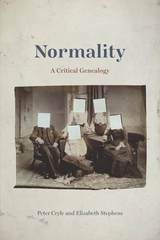
In Normality, Peter Cryle and Elizabeth Stephens offer an intellectual and cultural history of what it means to be normal. They explore the history of how communities settle on any one definition of the norm, along the way analyzing a fascinating series of case studies in fields as remote as anatomy, statistics, criminal anthropology, sociology, and eugenics. Cryle and Stephens argue that since the idea of normality is so central to contemporary disability, gender, race, and sexuality studies, scholars in these fields must first have a better understanding of the context for normality. This pioneering book moves beyond binaries to explore for the first time what it does—and doesn’t—mean to be normal.

The Allied landings on the coast of Normandy on June 6, 1944, have assumed legendary status in the annals of World War II. But in overly romanticizing D-day, Olivier Wieviorka argues, we have lost sight of the full picture. Normandy offers a balanced, complete account that reveals the successes and weaknesses of the titanic enterprise.
In addition to describing the landings with precision and drama, Wieviorka covers the planning and diplomatic background, Allied relationships, German defensive preparations, morale of the armies, economics and logistics, political and military leaders, and civilians’ and soldiers’ experience of the fighting. Surprisingly, the landing itself was not the slaughter the general staff expected. The greater battle for Normandy—waged on farmland whose infamous hedgerows, the bocage, created formidable obstacles—took a severe toll not only in lives lost, but on the survivors who experienced this grueling ordeal.
D-day, Wieviorka notes, was a striking accomplishment, but it was war, violent and cruel. Errors, desertions, rivalries, psychological trauma, self-serving motives, thefts, and rapes were all part of the story. Rather than diminishing the Allied achievement, this candid book underscores the price of victory and acknowledges the British, American, and Canadian soldiers who dashed onto the Normandy beaches not as demigods, but as young men.
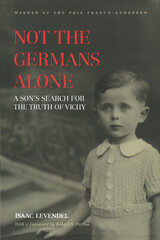
On the eve of D-Day, Isaac Levendel's mother left her hiding place on a farm in southern France and never returned. After 40 years of silence and torment, he returned to France in 1990 determined to find out what had happened. This is the story of how, with perseverance, luck, and official help, he gained access to secret wartime documents laying bare the details of French collaboration-and the truth about his mother's fate.
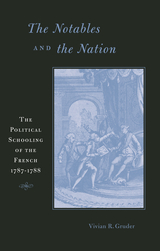
The ending of absolute, centralized monarchy and the beginning of political combat between nobles and commoners make the years 1787 to 1788 the first stage of the French Revolution. In a detailed examination of this critical transition, Vivian Gruder examines how the French people became engaged in a movement of opposition that culminated in demands for the public's role in government.
Gruder traces the growing involvement of the French people in the public issues of the day, leading to increased politicization. The debates of the Assembly of Notables in early 1787 aroused public support against the monarchy and in late 1788 confirmed public opposition to the nobility. The media--including newspapers and newsletters, pamphlets, literary societies, songs, iconography, and festive activities--disseminated messages of opposition and gave voice to popular aspirations for change. At hundreds of community assemblies throughout France in late 1788, people showed remarkable astuteness about such political issues as voting and representation and demonstrated a capacity for mobilization.
The Notables and the Nation contributes to a renewed interest in the political origins of the French Revolution. It argues that a "bourgeois" revolution did take place as a movement for political aspirations, and invites us to witness the birth of popular representative government.

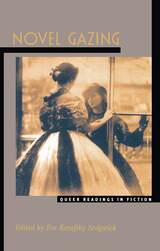
Through discussions of a diverse array of British, French, and American novels—including major canonical novels, best-sellers, children’s fiction, and science fiction—these essays explore queer worlds of taste, texture, joy, and ennui, focusing on such subjects as flogging, wizardry, exorcism, dance, Zionist desire, and Internet sexuality. Interpreting the works of authors as diverse as Benjamin Constant, Toni Morrison, T. H. White, and William Gibson, along with canonical queer modernists such as James, Proust, Woolf, and Cather, contributors reveal the wealth of ways in which selves and communities succeed in extracting sustenance from the objects of a culture whose avowed desire has often been not to sustain them. The dramatic reframing that these essays perform will make the significance of Novel Gazing extend beyond the scope of queer studies to literary criticism in general.
Contributors. Stephen Barber, Renu Bora, Anne Chandler, James Creech, Tyler Curtain, Jonathan Goldberg, Joseph Litvak, Michael Lucey, Jeff Nunokawa, Cindy Patton, Jacob Press, Robert F. Reid-Pharr, Eve Kosofsky Sedgwick, Melissa Solomon, Kathryn Bond Stockton, John Vincent, Maurice Wallace, Barry Weller
READERS
Browse our collection.
PUBLISHERS
See BiblioVault's publisher services.
STUDENT SERVICES
Files for college accessibility offices.
UChicago Accessibility Resources
home | accessibility | search | about | contact us
BiblioVault ® 2001 - 2024
The University of Chicago Press









